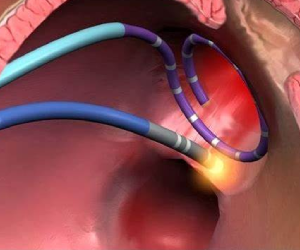About Liver Cancer
Liver cancer, also known as hepatocellular carcinoma (HCC), is a serious life-threatening disease that originates in the liver. Understanding liver cancer is essential for early detection and effective treatment.
Liver cancer, a formidable adversary in the realm of oncology, poses a significant global health challenge. Emerging silently and often without clear symptoms, it demands vigilant attention. With its diverse subtypes and multifaceted risk factors, liver cancer warrants a comprehensive exploration.
This journey into the intricate landscape of liver cancer unveils its prevalence, causes, and potential preventive measures. By understanding the nuances of this disease, we empower ourselves to navigate the complex terrain of liver cancer with knowledge and resilience, shedding light on one of the most formidable foes in the world of cancer.
Liver cancer often develops in individuals with underlying liver conditions, such as cirrhosis, chronic hepatitis B or C infection, or non-alcoholic fatty liver disease (NAFLD). Other risk factors include excessive alcohol consumption, exposure to aflatoxins (toxins produced by certain moulds), and a family history of liver cancer.
Types of Liver Cancer: Liver cancer can manifest in different forms, including:

Hepatocellular Carcinoma (HCC)

Intrahepatic Cholangiocarcinoma

Hepatoblastoma
Symptoms
Recognizing the symptoms of liver cancer is crucial for early diagnosis and successful treatment. However, liver cancer often does not cause symptoms in its early stages. It's important to note that liver cancer symptoms can overlap with other conditions, and some individuals may remain asymptomatic until the disease is advanced.
As the disease progresses, common signs and symptoms may include:

Unexplained Weight Loss

Abdominal Pain

Jaundice

Fatigue

Loss of Appetite

Swelling
Common Treatment Options
Liver cancer treatment is complex and depends on factors such as the cancer's stage, the extent of liver damage, and the patient's overall health.
Here is a detailed analysis of typical treatment options and some additional considerations:

Surgery
Surgical intervention is a primary option for early-stage liver cancer, provided the liver functions well. It involves the meticulous removal of the tumour or a portion of the liver, known as a hepatectomy. This procedure is most effective when the cancer is confined to the liver. In specific cases, a liver transplant may be considered, offering a potential cure for advanced liver cancer by replacing the diseased liver with a healthy one from a donor.

Ablation
Ablation methods, including Radiofrequency Ablation (RFA) and Microwave Ablation, are minimally invasive techniques that use heat to precisely target and eliminate cancerous liver tissue. These approaches are particularly suitable for patients with smaller liver tumours or those for whom surgery isn't an option due to underlying health conditions. By applying heat, these therapies effectively destroy cancer cells, offering a potential treatment option to improve patient outcomes.

Transarterial Chemoembolization (TACE)
Transarterial Chemoembolization (TACE) is a localized treatment strategy for liver cancer. During TACE, chemotherapy drugs are directly injected into the arteries that supply the tumour. Subsequently, embolization of these arteries is performed to cut off the tumour's blood supply, depriving it of oxygen and nutrients. This dual approach helps to shrink the tumour and alleviate related symptoms, offering a valuable treatment alternative, especially when surgery isn't feasible.

Targeted Therapy
Targeted therapy drugs represent a contemporary approach to managing liver cancer. These medications focus on specific molecules or pathways involved in cancer growth, thereby impeding its progression. Often used in conjunction with other treatments, such as chemotherapy or immunotherapy, targeted therapy offers a more tailored and effective treatment strategy, particularly for advanced liver cancer cases.

Immunotherapy
Although not yet considered a standard treatment for liver cancer, ongoing research explores the potential of immunotherapy. This innovative approach aims to activate the body's immune system, enabling it to recognize and combat cancer cells. Clinical trials are underway to evaluate the efficacy of immunotherapy in specific liver cancer scenarios, potentially revolutionizing the treatment landscape in the future.
Brief about the Surgical Procedure
Surgical procedures for liver cancer aim to remove the cancerous tissue while preserving as much healthy liver tissue as possible. The choice of surgery depends on the cancer's stage and location. Some common surgical options include:
Hepatectomy:
A hepatectomy involves the removal of a portion of the liver containing the tumour. In some cases, a liver transplant may be necessary for advanced liver cancer.
Radiofrequency Ablation (RFA)
RFA uses heat generated by radiofrequency waves to destroy cancerous tissue. It is typically employed for small tumours or as a palliative treatment.
Liver Transplantation
In cases where the cancer cannot be surgically removed without damaging liver function, a liver transplant may be considered. This involves replacing the infected liver with a healthy one donated by a donor.
In conclusion, liver cancer is a formidable disease with various types, requiring early detection and comprehensive treatment approaches. Awareness of the disease, recognizing potential symptoms, and understanding the available treatment options are crucial in the battle against this challenging condition. Advances in liver cancer research and treatment continue to offer hope and improved outcomes for individuals facing this diagnosis.
Opting for the most suitable treatment for liver cancer can present a complex challenge. Engaging in open and informative dialogues with a specialized oncologist in liver cancer is paramount. They can provide clarity on the advantages, potential drawbacks, and side effects associated with each treatment option tailored to your specific liver cancer type and stage. Seeking a second opinion from another experienced expert in the field can offer valuable perspectives to help you make the best treatment decision.
Our commitment to furnishing comprehensive information on liver cancer and its treatment alternatives remains unwavering. We are devoted to empowering patients and their caregivers with the knowledge required to make informed choices on their healthcare journey. Our patient-centred approach, rooted in compassionate care, remains the cornerstone of our mission to stand by your side as you navigate the path to recovery.